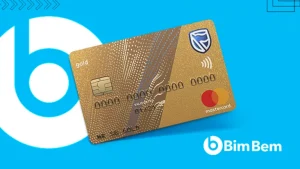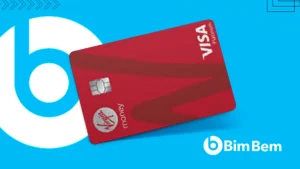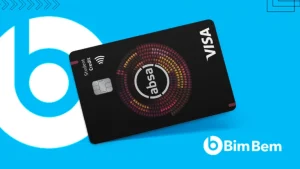Anúncio
Microloan opportunities have emerged as a vital resource for entrepreneurs seeking to ignite their businesses.
With small-scale loans, individuals can access the funding they need, regardless of their credit history. T
Anúncio
Join us on a journey to uncover how microloans can transform small business dreams into reality.
What are Microloan Opportunities?
Microloan opportunities are a type of financial assistance designed to support small businesses and entrepreneurs who may struggle to access traditional bank loans.
Anúncio
These loans typically offer smaller amounts of money, usually ranging from R1,000 to R100,000, and have more flexible repayment terms.
Microloans can be critical for individuals looking to start or expand their businesses, especially if they lack sufficient credit history or collateral.
Microloan programs are offered by various organizations, including non-profits, community development financial institutions (CDFIs), and some governmental entities.
These entities aim to promote economic development by providing financial resources to those who might otherwise be overlooked.
One significant aspect of microloan opportunities is their focus on underserved communities.
These loans specifically target individuals from low-income backgrounds or those who belong to minority groups, helping to bridge the gap in access to capital.
By reducing barriers to funding, microloans empower entrepreneurs to pursue their goals and contribute to the local economy.
Features of Microloan Opportunities
Most microloans come with lower interest rates compared to traditional loans, making them more affordable for borrowers.
Additionally, the application process is often quicker, with fewer requirements, thus allowing for more straightforward access to funds.
Some microloan programs even provide advisors or mentors to help borrowers develop their business skills.
With the growing recognition of their importance, microloan opportunities continue to gain traction as a viable funding option for aspiring business owners
. In the following sections, we will explore the benefits of such loans, the application process, and real-life success stories that highlight their impact.
Benefits of Microloan Opportunities
Microloan opportunities provide numerous benefits for entrepreneurs and small business owners. One of the main advantages is easy access to capital.
Unlike traditional loans, microloans often have less stringent eligibility criteria.
This makes it possible for individuals who might not qualify for standard banking loans to receive funding.
Additionally, microloans offer competitive interest rates, making repayment more manageable.
Many microloan programs are designed to support small amounts, which means borrowers can avoid the overwhelming debt that can accompany larger loans.
Promoting Financial Literacy
Many organisations that provide microloans also focus on financial education.
They help borrowers understand budgeting, managing cash flow, and developing business plans.
This educational support equips entrepreneurs with essential skills for long-term success.
Community Impact
Microloan opportunities significantly impact local communities.
When entrepreneurs receive funding, they often reinvest in their communities, creating jobs and stimulating economic growth.
This ripple effect fosters a supportive environment for new businesses and encourages innovation.
Flexibility in Use
Another benefit of microloans is the flexibility in how the funds can be used.
Entrepreneurs can allocate the money for various needs, such as purchasing equipment, inventory, or even for marketing purposes. This adaptability helps businesses to grow and thrive.
Encouraging Diverse Business Ideas
Microloans also support unique and diverse business ideas that may be overlooked by traditional lenders.
This promotes a more inclusive economy, where various products and services can flourish, creating a richer market for consumers.
How to Apply for Microloans

Applying for microloans can be easier than you think, especially if you know the steps to take. The first step is to research different microloan programs.
Many organisations offer microloans, including non-profits and community development financial institutions (CDFIs).
Each may have different eligibility requirements, so look for one that suits your needs. Next, prepare your documentation.
Generally, you will need to provide information such as your personal identification, business plan, financial statements, and any relevant tax documents.
Having these documents ready can streamline the application process.
Complete the Application Form
Most microloan programs require you to fill out an application form.
This form will typically ask for details about your business, how much funding you need, and what you plan to do with the funds.
Be honest and clear in your responses, as this can help build trust with the lender.
Demonstrate Your Business Plan
A strong business plan is crucial when applying for microloans. It should outline your business goals, target market, and financial projections.
A comprehensive plan shows the lender that you are serious about your business and have thought through your financial needs.
Attend an Interview or Meeting
Some lenders may require an interview or meeting as part of the application process. Be prepared to discuss your business and answer any questions they may have.
This is your chance to showcase your passion and commitment.
Wait for Approval
Once you submit your application, you will need to wait for approval.
This process can vary by lender; however, many microloan organisations aim for quick turnaround times. If approved, review the loan terms carefully before signing.
By following these steps, you can increase your chances of successfully obtaining a microloan to fund your business.
Microloan Opportunities for Startups
Microloan opportunities for startups are an essential resource for new entrepreneurs looking to get their businesses off the ground.
These loans can provide the necessary capital to cover initial costs, such as equipment, marketing, and operational expenses.
Startups often face unique challenges when trying to secure funding.
Traditional banks may hesitate to lend to new businesses due to a lack of credit history and established revenues.
Microloans, however, are specifically designed to cater to these emerging entrepreneurs, making them an excellent solution.
Accessible Financing
Microloans typically have lower borrowing amounts, which makes them more accessible.
This can be particularly helpful for startups, as the initial financial needs may not be extensive.
With microloans often ranging from R1,000 to R100,000, startups can receive the funding they require without incurring overwhelming debt.
Networking and Support
Many organisations that provide microloans also offer additional resources, such as mentorship and networking opportunities.
This support helps new business owners navigate the challenges they face and fosters connections within their industries.
Engaging with experienced mentors can be invaluable for startups trying to establish their foothold.
Building Credit History
By successfully repaying a microloan, startups can build a positive credit history.
This not only improves their chances of obtaining larger loans in the future but also demonstrates financial responsibility to potential investors.
Diverse Business Ideas
Microloans encourage diverse business ventures, giving entrepreneurs the freedom to explore innovative ideas and industries.
This support can lead to the development of exciting products and services that might not receive backing from conventional lenders.
Ultimately, microloan opportunities provide startups with the necessary funds, mentorship, and community connections to pave their way to success.
As these new businesses thrive, they contribute to the economy and job creation.
Success Stories of Microloan Beneficiaries
Success stories of microloan beneficiaries reflect the real impact of these financial resources on individual lives and communities.
Many entrepreneurs have transformed their dreams into reality with the help of microloans, showcasing how access to capital can stimulate growth and innovation.
One such inspiring success story is that of Sarah, a single mother who started a baking business from her home.
With a microloan, she was able to purchase essential equipment and ingredients. Today, her bakery supplies local cafes and has become a beloved brand in her community.
Innovative Businesses Flourishing
Another example is James, who launched a tech startup focused on affordable software solutions.
His microloan allowed him to hire skilled developers and market his products effectively.
As a result, his company has grown rapidly, creating jobs and contributing to the local economy.
Maria, an artisan who crafts handmade jewellery, received a microloan to expand her workshop.
This funding helped her buy materials in bulk and invest in marketing strategies.
Consequently, her jewellery line has gained popularity, leading to sales in international markets.
Community Revitalisation
In addition to individual successes, microloans positively impact communities.
A local café owner, Tom, used a microloan to renovate his space and introduce new menu items.
His café has since become a community hub, hosting events that foster local talent and bring people together.
These success stories demonstrate that microloan opportunities not only help individual entrepreneurs achieve their goals but also contribute to broader community growth.
By fostering innovation and supporting diverse business ventures, microloans help create a vibrant economy.
Embracing Microloan Opportunities for Your Business
Microloan opportunities provide viable funding solutions for entrepreneurs and startups looking to thrive in today’s economy.
With accessible financing options, mentorship, and community support, these loans empower countless individuals to turn their business dreams into reality.
Success stories of microloan beneficiaries highlight the transformative impact these funds can have, not only on individual enterprises but also on local communities and economies as a whole.
As businesses grow and prosper, they create jobs and contribute to the vibrancy of their surroundings.
By understanding what microloans offer and how to apply for them, aspiring entrepreneurs can take significant steps towards achieving their goals.
Embrace the potential of microloans to fuel your business journey and join the ranks of those who have transformed their lives and communities through entrepreneurship.





